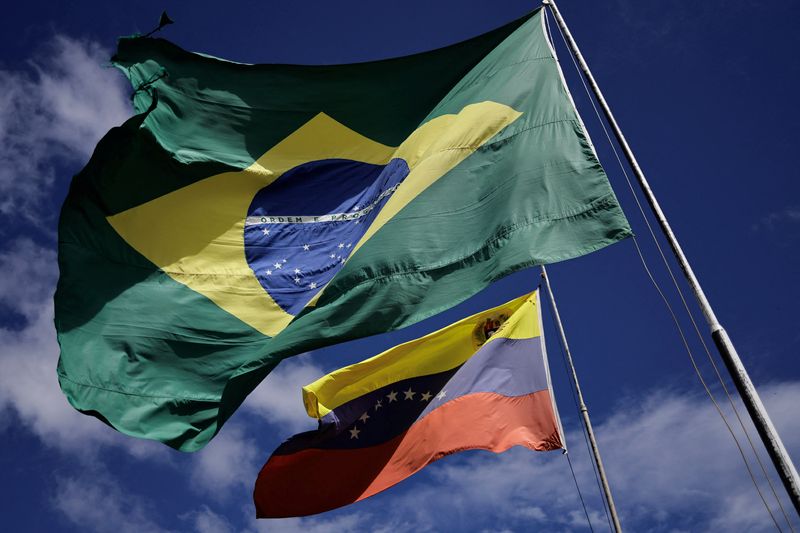Venezuela revokes Brazil’s authorization to represent Argentine interests in the country
2024.09.07 13:01
By Lisandra Paraguassu
BRASILIA (Reuters) -Venezuela revoked Brazil’s authorization to represent Argentine interests in the country, including administering the embassy where six opposition figures are sheltering, the Venezuelan government said Saturday.
In a statement, Venezuela said the decision was effective “immediately” and was due to proof that the embassy was being used to plan assassination attempts against President Nicolas Maduro and Vice President Delcy Rodriguez Gomez.
Brazil and Argentina government representatives did not immediately reply to a request for comment.
A source told Reuters that Brazil responded, saying it would continue to represent Argentine interests unless another country is designated, with Argentina’s authorization.
On Friday night, some opposition members in the Argentine residence reported on their X accounts that the building was under surveillance and had no electricity. They posted videos showing men dressed in black and patrols from the government intelligence agency, SEBIN.
In March, six people sought asylum in the Argentine embassy in Caracas after a prosecutor ordered their arrest on charges including conspiracy. Opposition leader Maria Corina Machado has denied the allegations against her collaborators.
On Friday, Argentina’s Foreign Ministry asked the International Criminal Court (ICC) to issue an arrest warrant against Nicolas Maduro and other senior government officials for events that occurred after the July elections.

Venezuela broke relations with Argentina following its disputed presidential election on July 28. Brazil, like Colombia and Mexico, has asked the Venezuelan government to publish the full results of the vote.
The government has not done so and the country’s electoral authority proclaimed that President Nicolas Maduro won re-election for a third term.
(Report by Lisandra Paraguassu in Brasilia; Additional reporting by Jorge Otaola in Buenos Aires Written by Vivian Sequera and Alexander Villegas, Editing by Franklin Paul)








